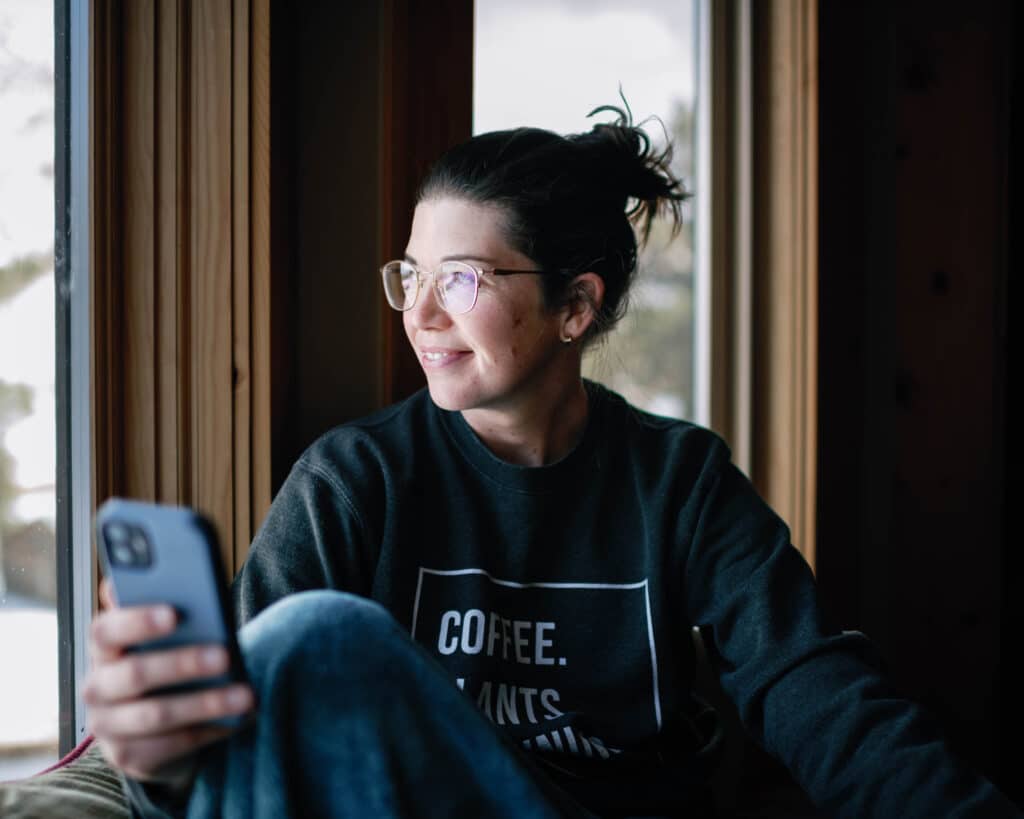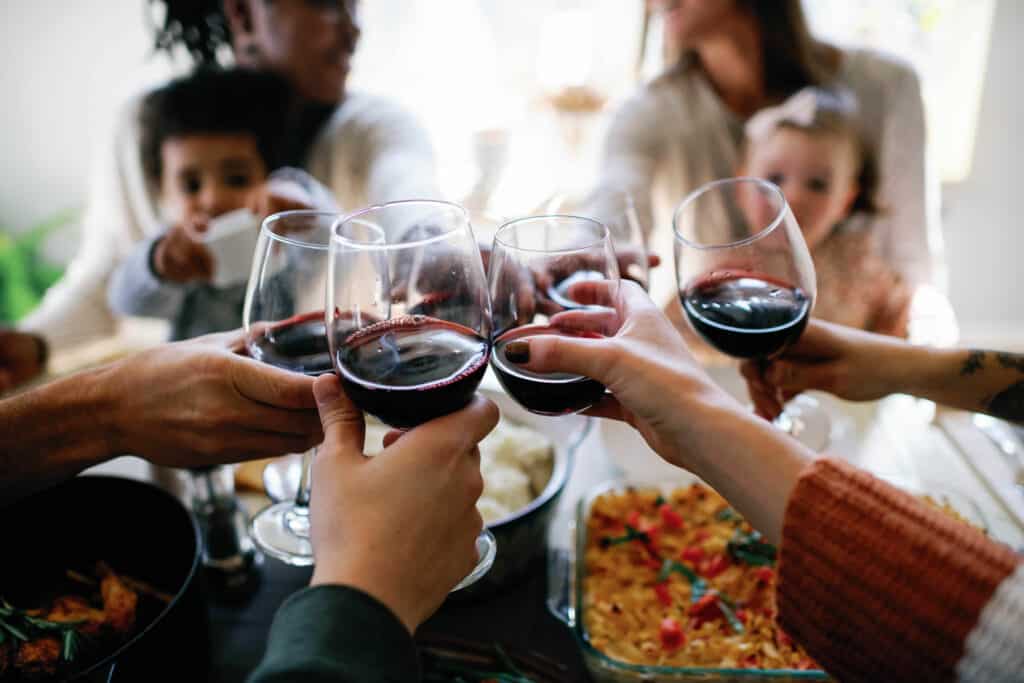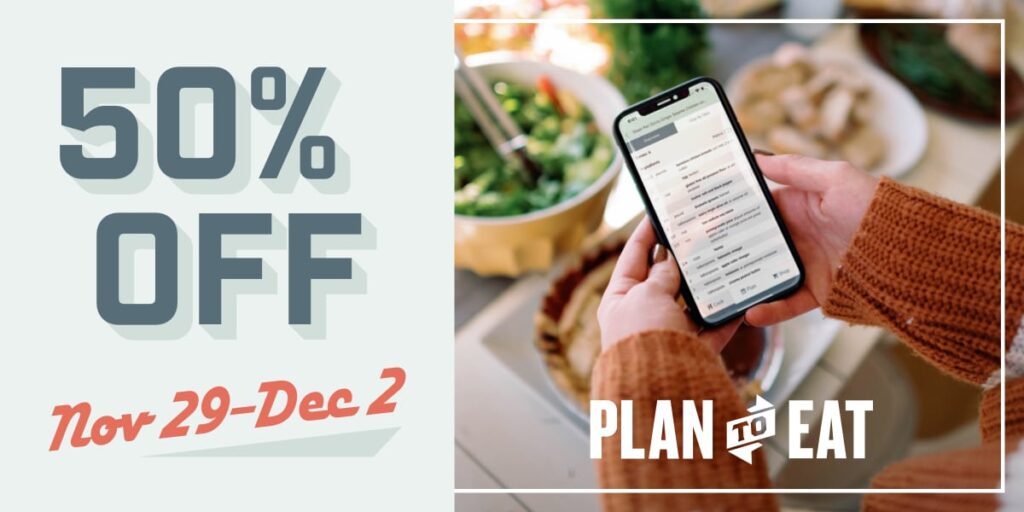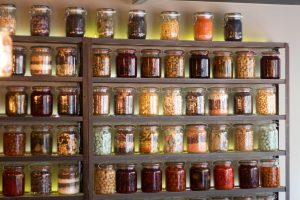Imagine this, it’s 5 o’clock and you just got home from work. You haven’t eaten since lunch and you’re feeling a bit hangry, but you have no plan for what to eat for dinner. You run through a mental list of what you could potentially make, rummage through the pantry to see what you have on hand, and then decide you need to run to the store to get a few more ingredients to make the meal you decided on. You go to the store and spend twice as much as you expected because you bought a few “extra” things that sounded good. Once you cook dinner and clean up, the night is practically over and you’re ready to flop in bed.
I don’t know about you, but that sounds like an awful way to spend my evening.
Imagine this instead, it’s 5 o’clock and you just got home from work. Your home is filled with the spicy, warm smells of carnitas in the crockpot. You haven’t eaten since lunch and your mouth is watering for dinner, so you pull out tortillas, cheese, and salsa and make some simple tacos. You sit down to eat within 20 minutes of being home and you have the rest of the evening to do what you want!
That sounds way better.
Navigating each day without a plan is like driving your car with the gas light on, it’s stressful. I know some people say they can’t get on board with meal planning because they like the flexibility and freedom of deciding what to eat in the moment or waiting to see what they’re in the mood for each night, but I argue that planning ahead leads to more freedom in the long run. When we plan ahead, we regain our brain power, time, and money.

Your pathway to freedom.
Meal planning actually leads to more freedom than flying by the seat of your pants because it helps you regain so many critical components of your day.
- It gives you mental freedom by getting things out of your head and clearing up brain space so you can focus on other tasks and important ideas.
- It gives you financial freedom because you’re not paying premium restaurant prices for food you prepare at home and you buy food you’re actually going to use and not all those “extras” that sound good.
- It gives you time freedom because when your life has a plan you know what you have time for, how you can fit new things into your schedule, and what’s going to overextend you. It gives you the ability to confidently say, “No, I don’t have time for that.”
Creating a meal plan can save you as much as 23% on your monthly grocery budget because you’re buying ingredients that have a purpose and not simply shopping at random. That’s the difference between spending $1,000 a month and $770 a month at the grocery store. And those savings don’t even account for the money you save by not eating out multiple times a week!
Meal planning can also save you an average of 75 minutes per week on planning and grocery shopping. Forget all the last minute trips to the store or wandering around deciding what sounds good. When you have a plan, you can grocery shop quickly and efficiently because you know what to buy.
Beyond the tangible benefits of meal planning, you can feel a deep sense of peace from knowing you’re prepared. You can reclaim quality time and meaningful moments each day – whether it’s unwinding with a book, playing with your kids, or enjoying a quiet evening with your partner or a friend. It’s about more than just meals; it’s about nurturing your well-being and cherishing those you love. Having control over your daily routine reduces mental clutter and anxiety and allows you to not only prepare nutritious food, but enjoy more of what you love.

How to meal plan with flexibility:
Meal planning does not have to follow a strict set of rules or formatting. Just like any other organization technique, it can (and should) work for you and your lifestyle. So while some people need to meal plan in a way that accounts for their tight schedule and they follow it to a T, you don’t have to do it that way.
You can create a meal plan for the week that includes recipe variety and built-in wiggle room for nights when you want to go out to eat.
In a one-week meal plan, you might only plan three recipes on your calendar. You could double the servings of one or two recipes so you have leftovers, or a freezer meal for the future. With that simple plan, you potentially have five nights of the week covered, so you don’t have to make last-minute decisions when you’re low energy, but you also have the flexibility to change your mind.
This is the way I meal plan and it fits my lifestyle perfectly. My husband really enjoys going out to eat once or twice a week, but I also like cooking (and saving money!), so this satisfies both our desires.
If you’ve pushed back on meal planning because you find it strict and inflexible, I think you’ll find this method meets your needs and reduces your decision fatigue around food. You’ll save money, time, and energy so you have more to spend doing what you love most.
Ready to plan with flexibility and control?






